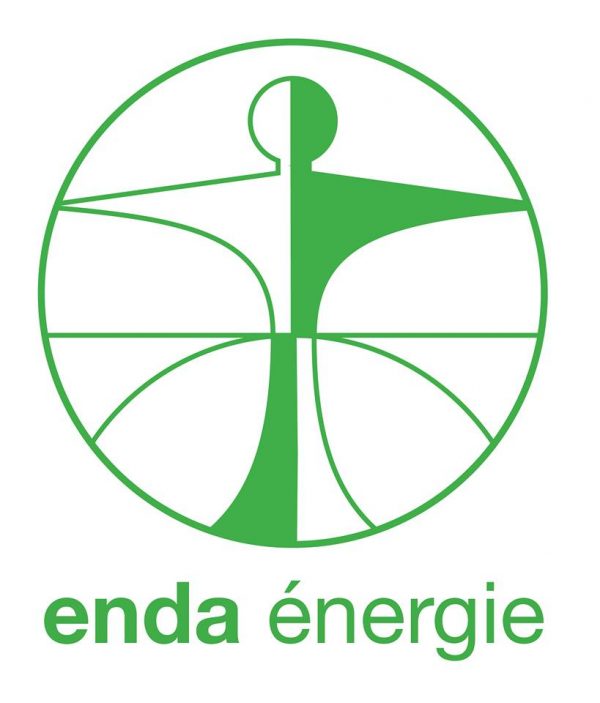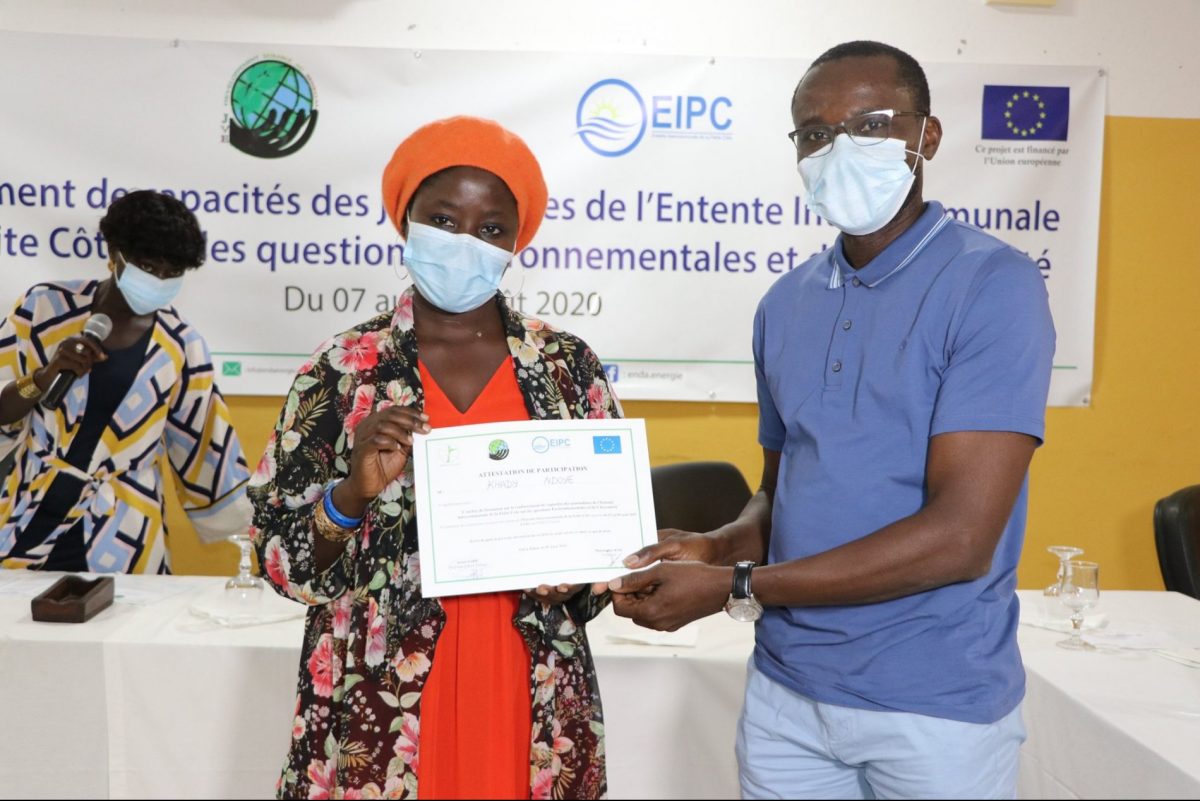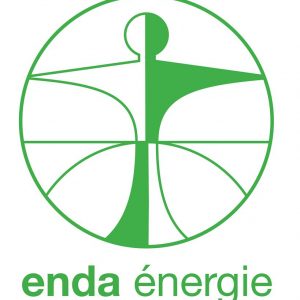The Good Ecological Governance Programme for an Intercommunal Agreement of the Little Coast (Petite Côte – EIPC) For a Successful Integrated Coastal Zone Management (EIPC – GIZC)
This program (EIPC-GIZC) consists in accompanying the ecological, energetic and economic transition through the development of an eco-citizen culture for an inclusive management of natural resources in the EIPC.


Overview of the project

The Good Ecological Governance Programme for an Intercommunal Agreement of the Little Coast (Petite Côte – EIPC) for a Successful Integrated Coastal Zone Management (ICZM) consists in supporting the ecological, energy, and economic transition through the development of an eco-citizen culture for an inclusive management of natural resources in the EICP. It is to strengthen the capacities of Civil Society Organizations (CSOs) in the communes of Mbour, Saly, Ngaparou, Malicounda, and Somone in order to involve them in the elaboration and implementation of climate change resilient and low carbon development programs.
More specifically, this involves:
- OS1: Ensure education, awareness, communication, and training (ESCF) of stakeholders in eco-citizenship, and environmental monitoring for a safe and healthy coastline
- OS2: Strengthen the capacities of CSOs and of local decision-makers for the inclusive implementation of climate change resilience programs for the populations and ecosystems of the intercommunal agreement
- OS3: Ensure sustainable and participatory waste management that creates wealth and green jobs for youth/women
The expected results are:
- R1: Rules of good conduct, in terms of environmental protection and the preservation of biodiversity, are promoted through schools, community radio stations, youth, and populations with various tools to raise awareness (educational tools, awareness kit, video capsules, mobile application, ecological comic strips,) but also through the implementation of concrete actions (school gardens, environmental clubs, etc.)
- R2: An environmental watch for a healthy and secure coastline is ensured by the EIPC, thanks to a functional platform: this constitute a tool for sharing, managing and sharing knowledge through communities, for practice and networking between the EIPC and national experts, but also for disseminating information
- R3: Adaptation-mitigation projects are implemented through strengthened partnership between the governance of CSOs and local decision-makers.
These projects will be the result of several processes: capacity building of CSOs, partnership agreements between CSOs and local decision-makers, exploration of niches of local green job creation, training of elected officials, decentralised technical services on the development of the Regional Climate and Energy Plan (PCET,) public consultations in the form of a forum, study of the vulnerabilities of the communes, carbon assessment, action programs, round table of donors, etc.
- R4: A grassroots waste collection system is available and is provided at 75% by social enterprises. Here, an evaluation of the pilot Social Enterprises of Mbour will allow to extend it to the other communes of the Agreement. These new enterprises will then be provided with equipment, trained, and put in contact with elected officials to ensure waste collection
- R5: A waste treatment and recovery centre has been set up, creating about 500 jobs. Work will be done with the communes to set up a common landfill, regulated to promote the recovery of waste in order to create jobs
Program activities
- Lot 1 Program coordination
- Lot 2: Preliminary diagnosis
- Lot 3: Deployment of ESCF activities
- Lot 4: Capacity building of CSOs and of local decision makers
- Lot 5: Inclusive development of an Energy-Climate action plan and a portfolio of resilience projects
- Lot 6: Solid waste collection and recovery
- Lot 7: Knowledge management and dissemination
- Lot 8: Monitoring and evaluation of performance and impacts
Promoting effective environmental governance through enhanced citizenship, and collective participation.
Ongoing research
11/01/2017 - 04/01/2021
Training/Capacity Building
- 110 students
- 63 teacher-coaches
- 20 neighbourhood leaders
- 15 badiénou gokh
- 25 artists
- 20 CSOs
- 25 local elected officials
- 9 social enterprises for waste management
Total: 246 actors trained on 10 themes
Deployment of education and awareness activities
- 2 partnership agreements were signed with local radio stations
- 2 radio programs/month produced
- 2 “Zero Waste” awareness campaigns
- 5 environmental clubs set up
- 5 school gardens (introduction to micro-gardening) installed
- 1 ecological comic book published (Buur tefess)
- 1 musical compilation “NA SET” produced by
- 13 artists from the Petite Côte
- 1 mobile application and a web platform “the LTM” set up
Collection and valorization of waste management
- 5 sanitation committees transformed into ES
- 9 social enterprises created
- 1 Training in business management
- 2 Community Ecological Zones installed
- 600 waste garbage cans distributed
- 31 direct jobs created
Development of a PCET (Regional Climate Energy Plan)
- 1 GHG baseline inventory
- 15 trained surveyors
- 1 risk and vulnerability assessment
- 23 green projects in the project portfolio
It was funded by the EU in Senegal.
organisation
ENDA Energie is an international non-governmental organization created in 1982, and based in Dakar, Senegal. It is a member of the international network Environment-Development of the Third World (ENDA-TM). It is very involved in issues and actions related to access to renewable energy, climate change, social entrepreneurship, and gender in Africa. It is committed to simultaneously addressing the interrelated issues of equitable access to sustainable energy, energy efficiency, security, and climate change.
Its mission is to support populations in the transformation process towards sustainable development through the following strategic axes:
- Promoting sustainable access to modern energy services
- Strengthening the empowerment and resilience of communities, and of ecosystems in the face of environmental challenges, particularly climate change
- Promoting inclusive and citizen-based governance of natural resources
ENDA Energy provides a learning and action space, where all stakeholders can learn about the multidimensional aspects of development, and propose alternatives. As such, it provides technical support to local authorities in a planning process sensitive to energy and climate in a perspective of carbon sobriety and resilience.
The Young Volunteers for the Environment of Senegal (JVE)





